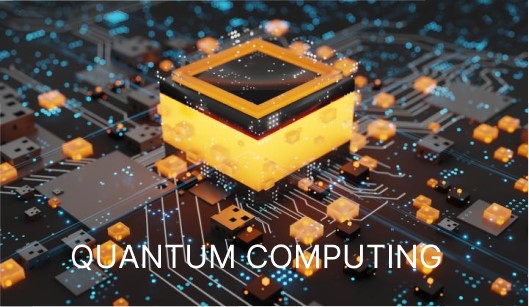
In a world where the boundaries of the conceivable are perpetually expanding, the term quantum computing emerges as a beacon of futuristic brilliance. Imagine a realm where traditional binary constraints are shattered, and computing power takes an exhilarating leap into the unknown. This isn't just another technological buzz; it's a paradigm shift that beckons you to explore the extraordinary possibilities of qubits in a dance of superposition and entanglement. Join us on this journey, where the allure of the quantum frontier meets the desire for a computing landscape that transcends the ordinary. Are you ready to dive into the future?
Understanding the Basics: Quantum 101
Quantum computing operates on the principles of quantum mechanics, a field that challenges classical physics. At its core, quantum bits or "qubits" defy binary logic, existing in multiple states simultaneously through a phenomenon known as superposition. This departure from classical bits forms the foundation of quantum computation, allowing for an exponential increase in processing power.
Quantum computing, with its transformative power, accelerates drug discovery, revolutionizes financial modeling, optimizes logistics, and enhances machine learning. Its prowess extends to cryptography, climate modeling, and material science, promising breakthroughs in various industries. From securing data with quantum-resistant encryption to unlocking unprecedented insights in artificial intelligence, the uses and benefits of quantum computing redefine efficiency, innovation, and the very fabric of technological possibilities across diverse sectors.
Superposition and entanglement are two features of quantum physics on which quantum computing is based. They empower quantum computers to handle operations at speeds exponentially higher than conventional computers and with much less energy consumption.
In quantum computing, superposition is a defining principle where qubits can exist in multiple states simultaneously. Unlike classical bits constrained to 0 or 1, superposition allows quantum bits to explore a multitude of possibilities concurrently. This unique quality exponentially increases computational capacity, enabling quantum computers to process complex information swiftly. Harnessing the power of superposition, quantum algorithms explore solutions in parallel, paving the way for unparalleled advancements in computation, optimization, and problem-solving, ushering in a new era of computational potential.
One of the fascinating aspects of quantum computing is entanglement, where qubits become interdependent, instantaneously influencing each other's state regardless of distance. This property not only enhances computational speed but also opens avenues for secure communication and quantum teleportation, paving the way for unparalleled connectivity in the digital realm.
Real-World Applications: Quantum Leap in Problem Solving
Beyond theoretical possibilities, quantum computing exhibits practical applications with the potential to revolutionize industries. From drug discovery and financial modeling to complex optimization problems, the quantum leap in problem-solving capabilities promises to redefine the efficiency and accuracy of computational processes.
Challenges on the Quantum Horizon: Overcoming Quantum Decoherence
Despite its promises, quantum computing faces challenges, notably quantum decoherence. External factors can disrupt the delicate quantum states, leading to errors in calculations. Researchers tirelessly work to develop error-correction techniques and fault-tolerant quantum systems, paving the way for the seamless integration of quantum computing into our technological landscape
In the clash of computational titans, quantum computers stand apart from classical counterparts. Unlike classical bits limited to 0 or 1, quantum bits or qubits leverage the principles of superposition and entanglement, existing in multiple states simultaneously. This fundamental distinction grants quantum computers unparalleled processing power, promising exponential speedups in solving complex problems. While classical computers rely on binary logic, quantum counterparts venture into the quantum realm, ushering in a new era of computational potential, efficiency, and possibilities yet unexplored.
Google is spending billions of dollars to build its quantum computer by 2029. The company opened a campus in California called Google AI to help it meet this goal. Once developed, Google could launch a quantum computing service via the cloud.
IBM
IBM plans to have a 1,000-qubit quantum computer in place by 2023. For now, IBM allows access to its machines for those research organizations, universities, and laboratories that are part of its Quantum Network.
Microsoft
Microsoft offers companies access to quantum technology via the Azure Quantum platform.
Others
There’s interest in quantum computing and its technology from financial services firms such as JPMorgan Chase and Visa.
In conclusion, quantum computing stands as a beacon of technological advancement, offering a glimpse into a future where computational possibilities know no bounds. As we continue to explore, innovate, and overcome challenges, the quantum leap in computing promises to redefine the very fabric of our digital existence. The journey into the quantum frontier is marked by both challenges and unprecedented potential, heralding a future where the unimaginable becomes reality.
Author
SOWNTHARIAH. S - CSE
2024-03-05